 Are you worried about your heater breaking down? Perhaps it’s aging, and you’ve noticed a few distressing signs. It’s important to know the signs that something is amiss with your heating system, so you’re not all of the sudden stuck with a completely broken down system when you need it the most.
Are you worried about your heater breaking down? Perhaps it’s aging, and you’ve noticed a few distressing signs. It’s important to know the signs that something is amiss with your heating system, so you’re not all of the sudden stuck with a completely broken down system when you need it the most.
True, it’s spring now, and temperatures are warming. But we’d like you to get the most effective use from your heater as you can for the rest of the season, not to mention we don’t want you to be stuck with a completely malfunctioning heater next fall when you need it. Keep reading to learn the signs that you may have a heater in need of repair, or in some cases in need of replacement.

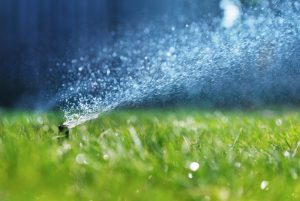 Springtime is officially here. It may still be cool for now, but soon enough, you’ll want to prep your home for warmer temps, spring allergies, and springtime weather.
Springtime is officially here. It may still be cool for now, but soon enough, you’ll want to prep your home for warmer temps, spring allergies, and springtime weather.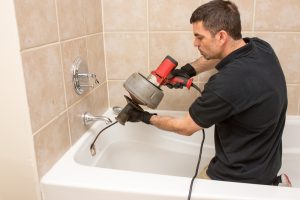 Drain clogs are one of those unfortunate things that just about every homeowner has to deal with at some point. But they are also one of those drain issues that most people deal with incorrectly. When a drain clog forms in the average home, it is instinct to reach for some type of store-bought drain cleaning solution to manage the problem. This is actually not a great way to deal with it, which we’ll get into more below.
Drain clogs are one of those unfortunate things that just about every homeowner has to deal with at some point. But they are also one of those drain issues that most people deal with incorrectly. When a drain clog forms in the average home, it is instinct to reach for some type of store-bought drain cleaning solution to manage the problem. This is actually not a great way to deal with it, which we’ll get into more below.  We’d venture to guess that as a homeowner in New Jersey, you’d like to whatever you can in order to save money on your energy bills. And there is one appliance in particular that contributes heavily to these bills—your heating system.
We’d venture to guess that as a homeowner in New Jersey, you’d like to whatever you can in order to save money on your energy bills. And there is one appliance in particular that contributes heavily to these bills—your heating system.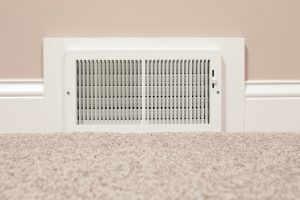 With nighttime temperatures traditionally hovering no higher than 39° at least through April, the short answer to this question is, “no.” If you do suspect or know that you have heating repair needs, you may be tempted to use your heater less and less, and be ready to just shut it off when the heating season ends so you don’t have to deal with it, but this can be a mistake.
With nighttime temperatures traditionally hovering no higher than 39° at least through April, the short answer to this question is, “no.” If you do suspect or know that you have heating repair needs, you may be tempted to use your heater less and less, and be ready to just shut it off when the heating season ends so you don’t have to deal with it, but this can be a mistake.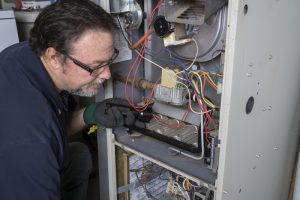 When you are shopping for a new HVAC system, whether it is an air conditioner or heater, you may come across some terminology you don’t recognize. One term that’s becoming a little more common, is “two-stage.” You will typically see this used in the description of high-efficiency air conditioners and furnaces.
When you are shopping for a new HVAC system, whether it is an air conditioner or heater, you may come across some terminology you don’t recognize. One term that’s becoming a little more common, is “two-stage.” You will typically see this used in the description of high-efficiency air conditioners and furnaces.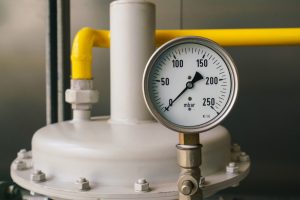 There may have been some point during your homeownership when you were told that your boiler is being impacted by scaling. Maybe you’re unsure of whether to take this problem seriously or not. We’re here to tell you that yes, you should. Scaling in boilers is actually really common, and also really serious. It’s caused by high levels of minerals in the water—namely, calcium and magnesium—that get left behind in the boiler tank and tubes. This can lead to a reduction in heat as well as a loud banging noise in some instances.
There may have been some point during your homeownership when you were told that your boiler is being impacted by scaling. Maybe you’re unsure of whether to take this problem seriously or not. We’re here to tell you that yes, you should. Scaling in boilers is actually really common, and also really serious. It’s caused by high levels of minerals in the water—namely, calcium and magnesium—that get left behind in the boiler tank and tubes. This can lead to a reduction in heat as well as a loud banging noise in some instances.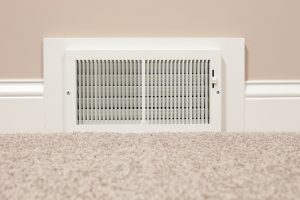 When you live in New Jersey, you know that winter temperatures dip to a point that not only is a fully functional heater more comfortable, it’s a vital necessity to keep you warm and comfortable all season long. If you own a heat pump system for your heating and cooling needs, it’s likely due to its numerous benefits: heat pumps are versatile, efficient, and extremely effective. And since this system works year-round, it’s important that you have it regularly maintained and quickly repaired when something does go wrong with it.
When you live in New Jersey, you know that winter temperatures dip to a point that not only is a fully functional heater more comfortable, it’s a vital necessity to keep you warm and comfortable all season long. If you own a heat pump system for your heating and cooling needs, it’s likely due to its numerous benefits: heat pumps are versatile, efficient, and extremely effective. And since this system works year-round, it’s important that you have it regularly maintained and quickly repaired when something does go wrong with it.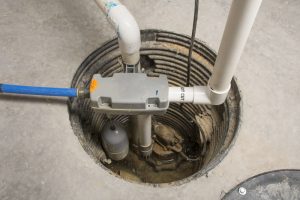 Or rather, is it ready for winter? Sump pumps aren’t something that other parts of the country need—they don’t have the potential for flooding due to heavy rains and snowmelt like we do. Your sump pump is vital to your home during this time of the year—being able to pump water out of your basement or crawlspace as needed.
Or rather, is it ready for winter? Sump pumps aren’t something that other parts of the country need—they don’t have the potential for flooding due to heavy rains and snowmelt like we do. Your sump pump is vital to your home during this time of the year—being able to pump water out of your basement or crawlspace as needed. Today, furnaces cost a lot less to operate than they did years ago, which is due to higher efficiency ratings. This is a definite plus, especially when we consider all of the ways in which we spend our money. Switching to a high-efficiency furnace is definitely a step in the right direction. If you are looking for
Today, furnaces cost a lot less to operate than they did years ago, which is due to higher efficiency ratings. This is a definite plus, especially when we consider all of the ways in which we spend our money. Switching to a high-efficiency furnace is definitely a step in the right direction. If you are looking for